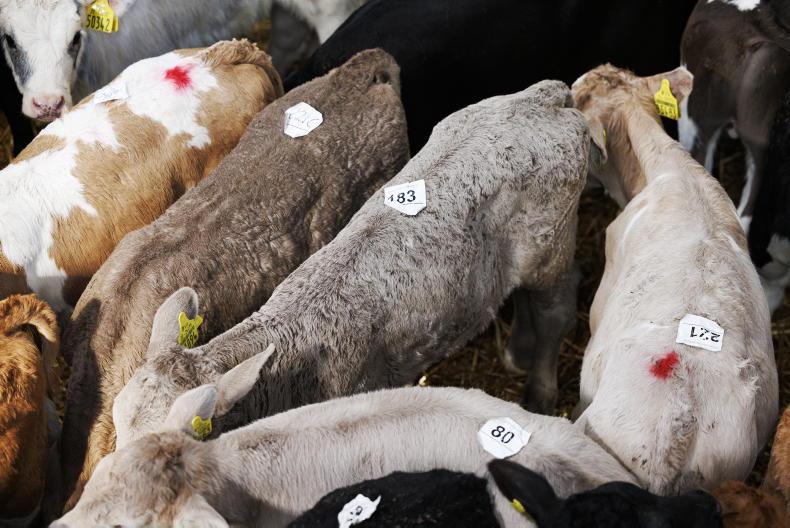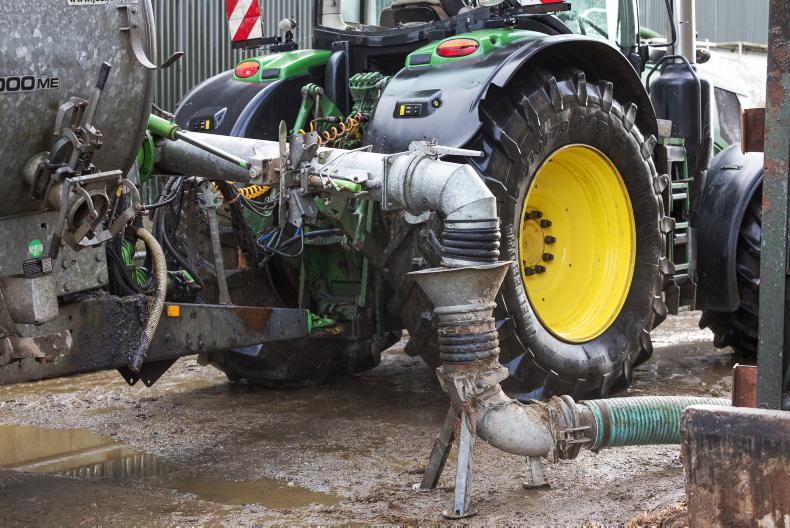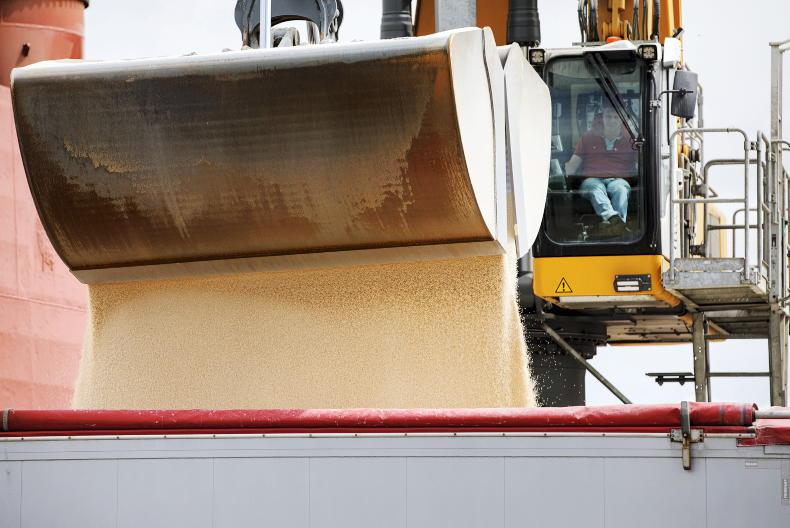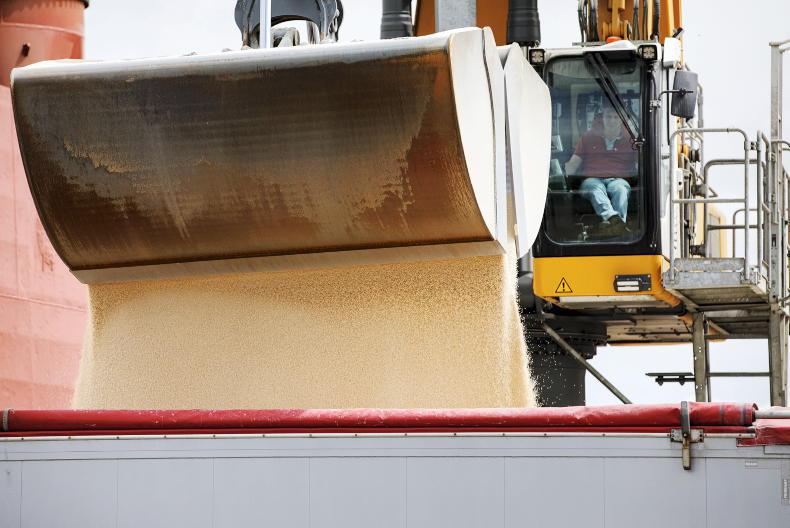Minister for Agriculture Charlie McConalogue is to be told that introducing new animal health rules in the Republic of Ireland without the same standards being brought in up North could put agri-food sector jobs in the firing line.
The Joint Oireachtas Committee on Agriculture has warned that the national veterinary prescription database, which is set to track antibiotic and wormer sales from 1 January 2023, will see farm standards north and south of the border diverge, but that these differences may not be reflected in food labeling.
These different standards may not satisfy overseas buyers of Irish-labeled food goods, the committee said.
Differing regimes
“Differing regimes will threaten our food quality standards. In excess of 50% of Northern Irish milk and meat are processed in the Republic, are labeled as ‘Irish’, but will be compliant with differing standards,” a report issued by the committee states.
“This will not satisfy our major customers, jeopardising employment in this sector.”
The committee issued its warning in the report it put together on the veterinary medicinal products, medicated feeds and fertilisers bill that Government plans on passing before 17 December.
The report’s 19 recommendations are to be presented to Minister McConalogue on Thursday.
Wormer prescriptions
The current draft of the bill sets out that vets are the only professionals who can issue the prescriptions that will be needed to use wormers from next year onwards.
The committee is pushing to allow responsible persons – qualified merchants and co-op operatives – to be allowed to issue these prescriptions too.
It was reported that by only allowing vets to prescribe medicines could create a monopoly in the sector and have a “costly impact on farmers”.
Fertiliser rules
The veterinary medicines bill also sets out the Department of Agriculture’s plans to make farmers who use fertiliser or lime register on a national database from next year, having all sales of these products tracked on a farm-by-farm basis.
Fines are set to issue to those who do not comply with the database and the committee has recommended that provisions are made to prevent any genuine bureaucratic errors from being penalised financially.
Committee chair Jackie Cahill acknowledged that the timeline for passing the bill is “tight”, as the fertiliser database is needed to ensure the new CAP’s schemes can operate from 1 January when the current CAP’s schemes will end.

Ensure compliance with new fertiliser rules during scheme inspections, the minister will be told by the committee. / Donal O'Leary
Cahill stated that the committee wants to make the new rules “as unbureaucratic as possible” for those buying or selling fertilisers.
“The fertiliser regulation bill has to be in place before 1 January in order for the CAP schemes for 2023-2027, so there is an urgency in getting this legislation passed through the Dáil and the Seanad,” the TD said.
“We have concerns about small operators and will they have the computer technology in order to operate the system.”
Data protection rules
Concerns were raised on the sharing of farmers’ information with State agencies.
Cahill told the Irish Farmers Journal that rather than providing agencies, such as Bord Bia, with an individual farmers’ records of fertiliser and veterinary medicines purchases, the Department could just inform the agencies concerned whether or not a farmer is compliant.
The Department confirmed to the Irish Farmers Journal last week that it is seeking legal advice on matters relating to the sharing of farmer information with these bodies.
The report also recommends allowing the Department to inspect on-farm fertiliser stocks during scheme inspections to ensure compliance with the planned database rules.
Read more
Controversial veterinary medicines bill stalled
Department seeks legal advice on farmer database plans
Data protection concerns raised on farm prescription plans
Minister for Agriculture Charlie McConalogue is to be told that introducing new animal health rules in the Republic of Ireland without the same standards being brought in up North could put agri-food sector jobs in the firing line.
The Joint Oireachtas Committee on Agriculture has warned that the national veterinary prescription database, which is set to track antibiotic and wormer sales from 1 January 2023, will see farm standards north and south of the border diverge, but that these differences may not be reflected in food labeling.
These different standards may not satisfy overseas buyers of Irish-labeled food goods, the committee said.
Differing regimes
“Differing regimes will threaten our food quality standards. In excess of 50% of Northern Irish milk and meat are processed in the Republic, are labeled as ‘Irish’, but will be compliant with differing standards,” a report issued by the committee states.
“This will not satisfy our major customers, jeopardising employment in this sector.”
The committee issued its warning in the report it put together on the veterinary medicinal products, medicated feeds and fertilisers bill that Government plans on passing before 17 December.
The report’s 19 recommendations are to be presented to Minister McConalogue on Thursday.
Wormer prescriptions
The current draft of the bill sets out that vets are the only professionals who can issue the prescriptions that will be needed to use wormers from next year onwards.
The committee is pushing to allow responsible persons – qualified merchants and co-op operatives – to be allowed to issue these prescriptions too.
It was reported that by only allowing vets to prescribe medicines could create a monopoly in the sector and have a “costly impact on farmers”.
Fertiliser rules
The veterinary medicines bill also sets out the Department of Agriculture’s plans to make farmers who use fertiliser or lime register on a national database from next year, having all sales of these products tracked on a farm-by-farm basis.
Fines are set to issue to those who do not comply with the database and the committee has recommended that provisions are made to prevent any genuine bureaucratic errors from being penalised financially.
Committee chair Jackie Cahill acknowledged that the timeline for passing the bill is “tight”, as the fertiliser database is needed to ensure the new CAP’s schemes can operate from 1 January when the current CAP’s schemes will end.

Ensure compliance with new fertiliser rules during scheme inspections, the minister will be told by the committee. / Donal O'Leary
Cahill stated that the committee wants to make the new rules “as unbureaucratic as possible” for those buying or selling fertilisers.
“The fertiliser regulation bill has to be in place before 1 January in order for the CAP schemes for 2023-2027, so there is an urgency in getting this legislation passed through the Dáil and the Seanad,” the TD said.
“We have concerns about small operators and will they have the computer technology in order to operate the system.”
Data protection rules
Concerns were raised on the sharing of farmers’ information with State agencies.
Cahill told the Irish Farmers Journal that rather than providing agencies, such as Bord Bia, with an individual farmers’ records of fertiliser and veterinary medicines purchases, the Department could just inform the agencies concerned whether or not a farmer is compliant.
The Department confirmed to the Irish Farmers Journal last week that it is seeking legal advice on matters relating to the sharing of farmer information with these bodies.
The report also recommends allowing the Department to inspect on-farm fertiliser stocks during scheme inspections to ensure compliance with the planned database rules.
Read more
Controversial veterinary medicines bill stalled
Department seeks legal advice on farmer database plans
Data protection concerns raised on farm prescription plans










SHARING OPTIONS